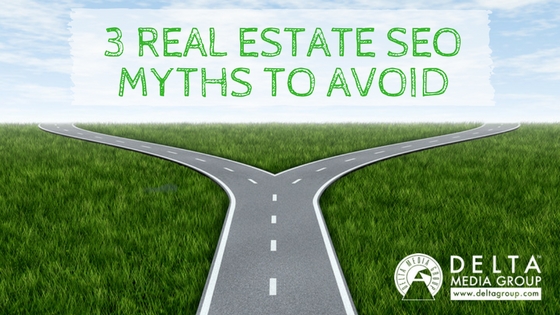You are viewing our site as a Broker, Switch Your View:
Agent | Broker Reset Filters to Default Back to List3 Real Estate SEO Myths to Avoid
September 28 2017
The keys to effective search engine optimization (SEO) are constantly evolving, and if you're not a full-time SEO professional, it can be more than a little difficult to keep up with the latest developments. So the tips, tricks, and tactics that worked well for SEO a few years ago may not be the same as what works best today. Mix in a pile of SEO articles and content creators that all have their own opinions of the best SEO advice, and you've got a recipe for confusion.
That constant supply of SEO advice means that there will always be myths about what works best, and debunking those myths can go a long way toward improving SEO performance for your website. Today, we're going to take a closer look at three SEO myths to avoid for your real estate website.
Uncovering Three SEO Myths For Your Real Estate Website

1. Keyword Phrases Need to Be an Exact Match for Search Queries
One of the most common threads about SEO myths is that if you flash back a few years, the myth may have actually been correct! That's because so many SEO myths are based on what used to work, and not what works today. Keywords are a great example, because there was a time when you really would develop multiple versions of the same content just to fit in the keyword strings that you expected most users to input when searching for content like yours.
While keywords still matter, you no longer need to worry about making your keyword strings an exact match for search queries. Google's algorithms have gotten much better at matching search terms with similar keywords, so you can focus more on creating great content with natural keyword use.
2. More Pages Equal Better SEO Performance
More is not always better when it comes to SEO, and that's certainly true when considering the number of pages to have on your real estate website. There is a lot of confusion about how the number of pages factors into search rankings, because Google really does value websites that update content regularly. However, adding new, unnecessary pages is not the way to make to make Google's algorithms happy.
If a new page accomplishes a goal and adds value to your website, then feel free to add it! If not, keep your website fresh by maintaining a blog and making regular posts, rather than adding new pages just to get some fresh content. As an added bonus, a real estate blog is one of the most effective marketing tools you can add to your website.
3. Mobile Optimization Isn't Important for SEO
As a real estate professional, you probably already know how important mobile websites are for marketing, and the same is true for SEO performance. The idea that mobile optimization isn't important for SEO is a flat-out myth, because Google's algorithms are designed to provide the most accurate, accessible results possible for search users. So if a user searches for your real estate website using their mobile device, you absolutely want them to reach a well-designed, optimized mobile version of your site. Since a mobile website is already a must for real estate marketing purposes, this is one SEO myth that can't be dispelled soon enough.
To view the original article, visit the Delta Media Group blog.









